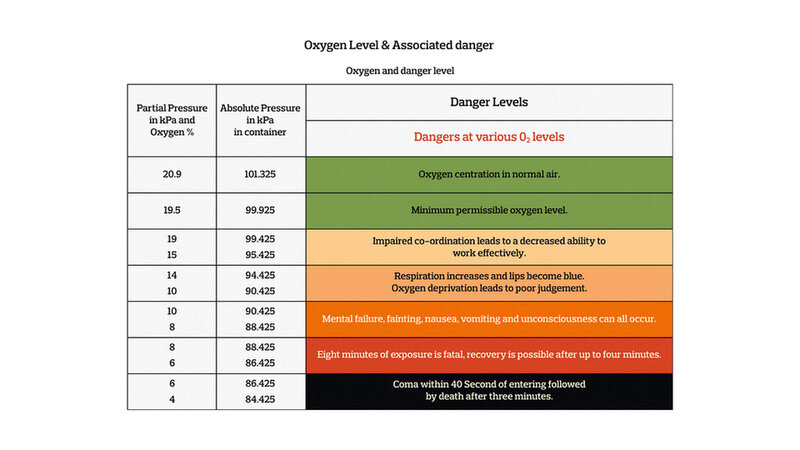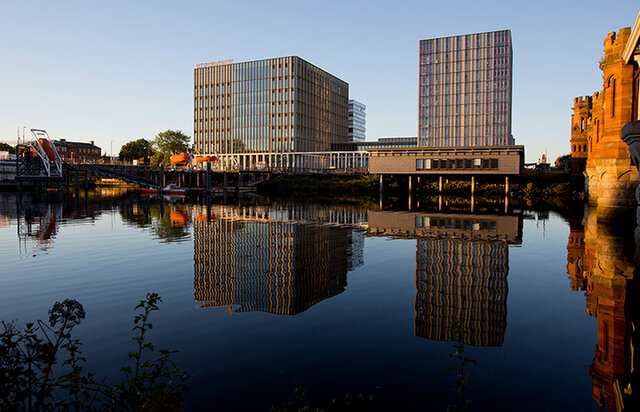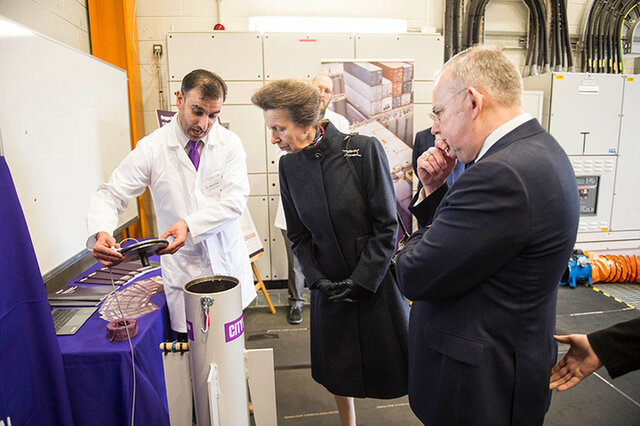INNOVATION SPOTLIGHT
Charting a course for maritime safety and training excellence
In a significant stride towards ensuring maritime safety and enhancing training protocols, City of Glasgow College has embarked on a pioneering Oxygen Depletion Research project.
In a significant stride towards ensuring maritime safety and enhancing training protocols, City of Glasgow College has embarked on a pioneering Oxygen Depletion Research project. This award-winning research is already saving lives at sea and reinforces the institution's commitment to cutting-edge research.
The Oxygen Depletion Research project at the City of Glasgow College delves into the complex dynamics of oxygen levels on ships, particularly in enclosed spaces. Maritime safety has long been a paramount concern, with the dangers of entering enclosed spaces on-board ships being known in the shipping community for a number of years. Enclosed spaces are a well-known location for loss of life and whilst attention is drawn to the dangers of enclosed spaces in every safety course, deaths still occur with chilling regularity, as an oxygen depleted atmosphere “looks normal” as there is nothing readily obvious to cause alarm regarding the dangers within the enclosed space.
Methodology and mitigations
As one of the leading maritime colleges in the UK, City of Glasgow College proactively led a programme of work to reduce the loss of life, as a result of oxygen depletion in enclosed spaces. Led by a team of seasoned researchers and experts in maritime safety, the research created a series of experiments that would raise awareness in at least three areas; sealed containers, open vented containers and chain lockers.

The research team discovered that certain common scenarios, such as inadequate ventilation in confined spaces or improper storage of certain cargoes, could lead to accelerated oxygen depletion.
Early results suggested the depletion takes place at a faster rate than previously thought. The lack of empirical research in this area gives the project the potential to have a profound global impact on maritime safety and education. The preliminary findings of the research have unveiled crucial insights that promise to reshape safety protocols within the maritime industry. The research team discovered that certain common scenarios, such as inadequate ventilation in confined spaces or improper storage of certain cargoes, could lead to accelerated oxygen depletion.
Such hazards of oxygen depletion do not stop at the immediate enclosed cargo spaces, but similar risks can exist when entering adjacent spaces. Furthermore, it is clear from the experiment results that once the hatch covers or tank lids are closed, the oxygen contained within the space is immediately being absorbed by the cargo or due to rusting within a space, and that enclosed spaces must at all times be treated as unsafe.
With an increasing focus on creating sustainable and secure learning environments, City of Glasgow College have taken a pioneering step towards ensuring the safety of seafarers. The methodology wanted to understand the factors contributing to oxygen depletion, and more importantly devise effective mitigation strategies, including training and skills development.

Positive impact on the maritime industry and training

The implications of the Oxygen Depletion Research project extend far beyond theoretical insights. The maritime industry, known for its commitment to safety and efficiency, stands to benefit significantly from the practical applications of this research. Armed with the insights gained from the research project, City of Glasgow College swiftly implemented targeted solutions to address the identified issues. This proactive approach includes educating the maritime community about the importance of maintaining optimal oxygen levels in enclosed spaces.
In a progressive move towards advancing maritime safety, City of Glasgow College has collaborated with the Maritime Skills Alliance (MSA) to develop a Merchant Navy Training Board (MNTB) recognised online course. This course plays a pivotal role in upskilling seafarers, empowering them with the knowledge and expertise necessary to navigate the complexities of oxygen depletion in enclosed spaces, ultimately contributing to the preservation of lives at sea.
The Oxygen Depletion Research project aligns seamlessly with City of Glasgow College's commitment to Let Learning Flourish through Inspiration, Excellence & Innovation.
The MNTB recognised online course is more than an educational programme; it is a proactive step towards enhancing maritime safety. The course covers a range of topics essential for maritime professionals, including the science behind oxygen depletion, effective monitoring techniques, and emergency response protocols. By leveraging cutting-edge educational technology, the course provides an interactive, immersive, and engaging learning experience, ensuring that seafarers acquire the knowledge needed to make informed decisions in real-world scenarios.

The Queen's Anniversary Award is a testament to the institution's commitment to excellence, and further solidifies City of Glasgow College's status as a leader in maritime education and research.
Recognition of excellence
The Oxygen Depletion Research project aligns seamlessly with City of Glasgow College's commitment to Let Learning Flourish through Inspiration, Excellence & Innovation. The institution has consistently demonstrated a forward-thinking approach, incorporating emerging technologies and research into its curriculum, ensuring the readiness and resilience of graduates to not only meet industry standards, but tackle arising challenges.
City of Glasgow College's dedication to innovation has not gone unnoticed. The institution's Oxygen Depletion Research project recently earned them the prestigious Queen's Anniversary Award for Higher and Further Education. This royal recognition underscores the highly innovative nature of the research and its potential to revolutionise maritime safety practices globally.
The Queen's Anniversary Award is a testament to the institution's commitment to excellence, and further solidifies City of Glasgow College's status as a leader in maritime education and research. This accolade acknowledges the lifesaving impact of the Oxygen Depletion Research project and highlights the institution's ongoing contributions to the advancement of knowledge and practices within the maritime sector.
This project is not just a milestone for the institution but a landmark contribution that will resonate across the seas, ensuring safer voyages for generations to come.